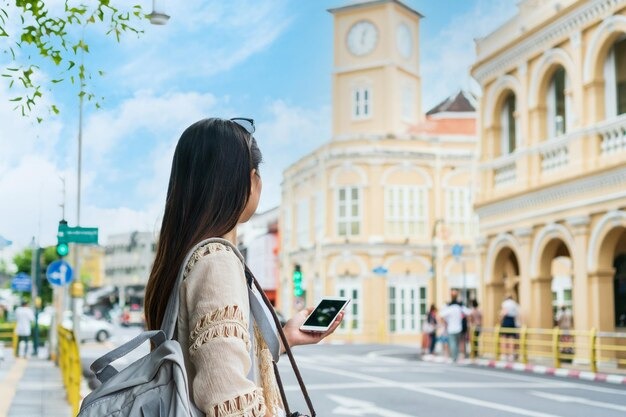Why Everyone Is Talking About Travel in 2026
As the world continues to evolve, so do the trends that shape how we explore it. By 2026, travel is poised to undergo a significant transformation, driven by shifts in technology, sustainability, and cultural priorities. From groundbreaking innovations in transportation to a renewed focus on meaningful experiences, the travel landscape is set to captivate global attention. Here’s why everyone is talking about travel in 2026—and what it means for you.
The Rise of Sustainable Travel
One of the most prominent themes shaping travel in 2026 is sustainability. With climate change at the forefront of global concerns, travelers are increasingly seeking eco-friendly options. Airlines are investing in more fuel-efficient aircraft, hotels are adopting zero-waste policies, and destinations are implementing measures to protect their natural and cultural heritage.
For example, Iceland has committed to becoming carbon-neutral by 2040, and its tourism industry is leading the charge with initiatives like geothermal-powered accommodations and electric vehicle rentals. Similarly, cities like Amsterdam are promoting cycling and public transport to reduce carbon footprints. As a traveler, you can contribute by choosing green-certified accommodations, supporting local businesses, and minimizing waste during your trips.
Revolutionary Transportation Options
By 2026, the way we move from one place to another will look drastically different. Electric vehicles (EVs) are becoming more accessible, and autonomous driving technology is advancing rapidly. Companies are also exploring hyperloop systems, which promise to cut travel times between major cities to a fraction of what they are today.
For instance, a proposed hyperloop route between Los Angeles and San Francisco could reduce the journey to just 30 minutes. Meanwhile, electric vertical takeoff and landing (eVTOL) aircraft are expected to revolutionize urban mobility, offering quick and efficient ways to navigate congested cities. These innovations will not only make travel faster but also more sustainable and convenient.
The Emergence of Experiential Travel
In 2026, travelers are prioritizing experiences over material possessions. This shift is driving demand for immersive activities that connect people with local cultures, histories, and environments. Whether it’s learning traditional crafts in Morocco, participating in wildlife conservation in Kenya, or attending culinary workshops in Italy, experiential travel is redefining what it means to explore the world.
This trend is also encouraging destinations to develop unique offerings that cater to diverse interests. For example, Japan has been promoting its “slow travel” initiatives, encouraging visitors to explore rural areas and engage deeply with local communities. To make the most of this trend, consider planning trips that allow you to step out of your comfort zone and create lasting memories.
The Role of Technology in Personalization
Technology continues to play a pivotal role in shaping the travel experience. By 2026, advancements in artificial intelligence and data analytics will enable highly personalized travel recommendations. From tailored itineraries to real-time language translation, these innovations will make traveling more seamless and enjoyable.
For instance, imagine a travel app that suggests activities based on your interests, dietary preferences, and budget, or a device that instantly translates menus and street signs into your native language. These tools will empower travelers to navigate unfamiliar destinations with confidence and ease. As you plan your trips, stay open to leveraging technology to enhance your experiences.
The Impact of Global Events and Shifting Priorities
Global events, such as the COVID-19 pandemic, have reshaped how people view travel. Health and safety have become top priorities, prompting destinations and businesses to adopt stringent hygiene standards. In 2026, travelers will continue to seek destinations that prioritize well-being, from wellness retreats in Bali to medical tourism in South Korea.
Additionally, geopolitical shifts and economic changes are influencing travel patterns. For example, the rise of digital nomadism has led countries like Portugal and Thailand to introduce long-term visas for remote workers. These developments highlight the growing intersection between travel, work, and lifestyle.
How to Prepare for Travel in 2026
With so many exciting changes on the horizon, it’s important to stay informed and adaptable. Here are some actionable steps to help you make the most of travel in 2026:
- Research Sustainable Options: Look for eco-friendly accommodations, tours, and transportation methods to reduce your environmental impact.
- Embrace New Technologies: Stay updated on the latest travel apps and tools that can enhance your journey.
- Plan for Experiences: Focus on activities that offer cultural immersion and personal growth.
- Stay Flexible: Be prepared to adapt to changing circumstances, whether it’s a new transportation option or a shift in travel regulations.
As we approach 2026, the world of travel is more dynamic and exciting than ever. By staying informed and embracing these trends, you can unlock unforgettable experiences and contribute to a more sustainable and connected future. The conversation around travel in 2026 is just beginning—and it’s one you won’t want to miss.



